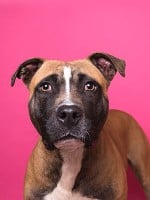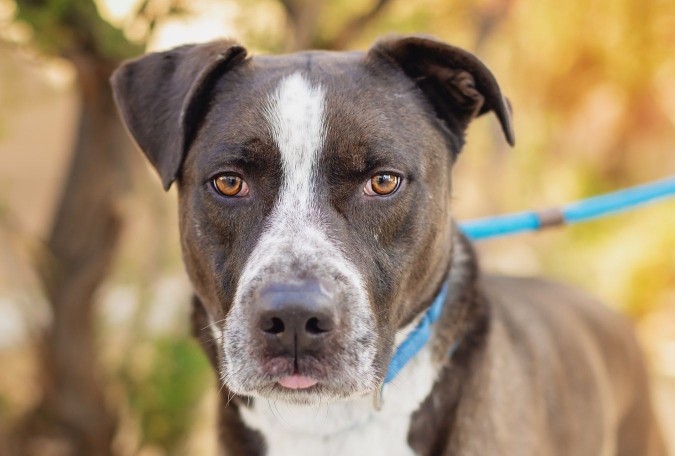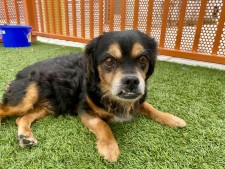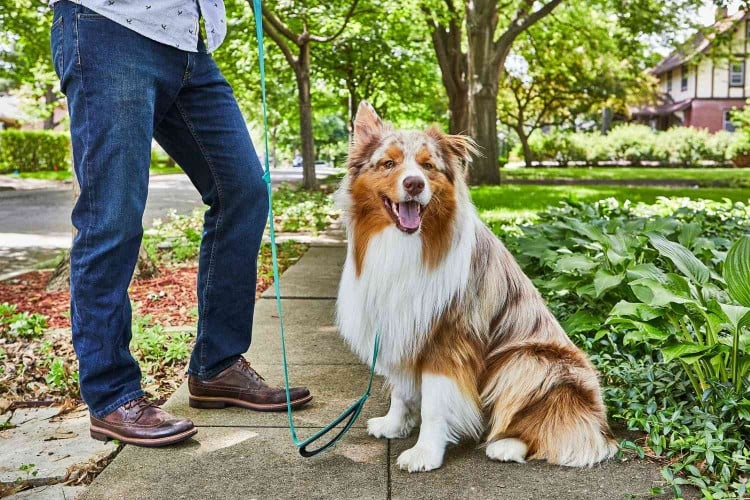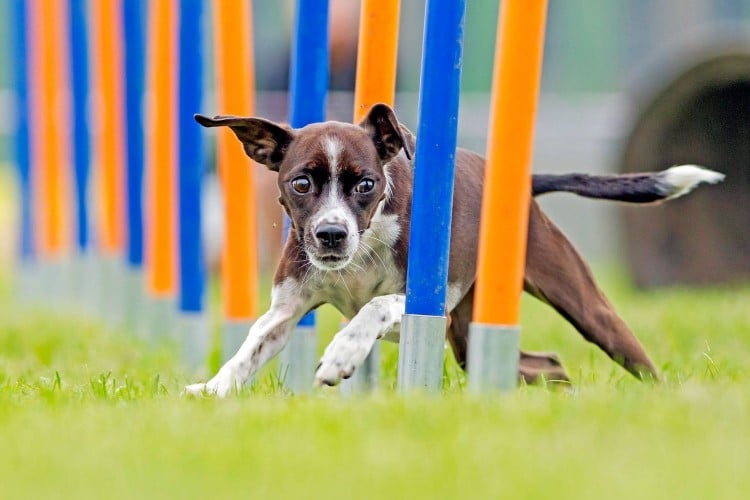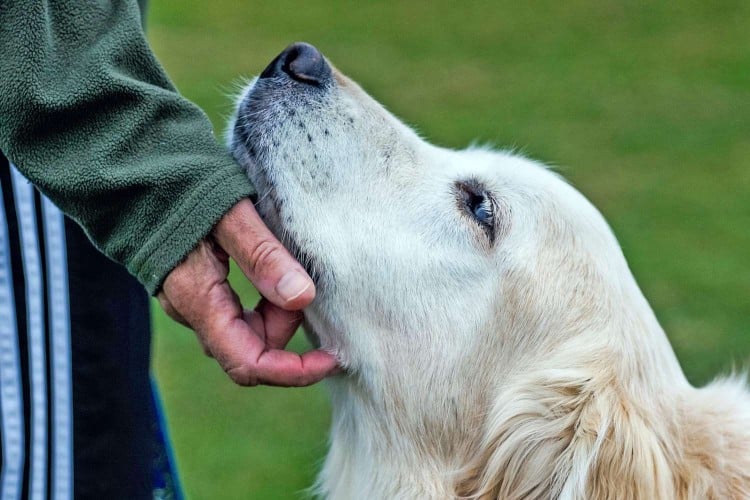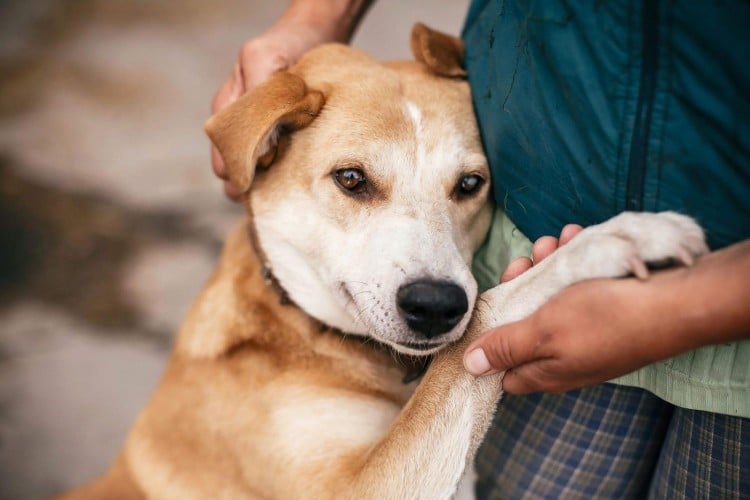The seemingly infinite list of things the COVID-19 pandemic canceled or postponed included 2020's Minor League Baseball season, costing young prospects either a valuable developmental season or their jobs altogether.
But there is one very, very young prospect in the New York Yankees organization who was able to keep his progress on track. That would be Dash, a 10-month-old golden retriever puppy who's training to become the Trenton Thunder's next bat dog.
If the season begins next April—and let's all hope it does—Dash will debut as the Thunder's fourth bat dog, sharing games with the team's current bat dog, the beloved Rookie. It's a continuation of what ESPN accurately dubbed "the family business."
"Dash is coming along really well," says Shelly Leibowitz, owner of Green Leaf Pet Resort and the bat dogs' trainer. "He has a bit more drive than perhaps the other dogs did, but with his training he's coming along just fine. He's got a delightful disposition, loves everybody, and enjoys his training."
The Thunder, which is the Yankees' Double-A affiliate, has employed bat dogs since 2002. Chase, whose likeness still hangs above the stands at Arm and Hammer Park, was the team's first bat dog. Derby, Chase's son, started in 2010, and worked with his dad for a couple years. Derby's son Rookie began as a puppy in 2014, and the two worked together for several years. They're all golden retrievers.
While he's related to Rookie, Dash is the first bat dog outside of the grandfather-father-son line. He's Rookie's cousin.
Eric Lipsman, senior vice president of corporate sales for the Trenton Thunder and Rookie and Dash's human dad, is hoping Dash and Rookie, 6, will be able to share their bat dog duties next season. Ideally, Rookie will work his two innings, and then Dash would get one to start out. (Last thing you want to do is rush a prospect along.)
"We want to make sure when April comes, he's ready," Lipsman says.
Life of a Bat Dog
For those unfamiliar, here's what a bat dog does. When Thunder players hit the ball into play, they drop their bats and run toward first base. When the play ends, Rookie runs out, gathers the bat in his mouth and returns to the dugout. Usually the job is done by not-nearly-as-fluffy children and teenagers, bat boys and bat girls.
Like his grandfather and father before him, Rookie holds the bat softly in his mouth, avoiding teeth marks, and returns it to the dugout. And like any member of the Yankee organization, he knows that pine tar is not to be messed with.
"Here's a pro tip: Always grab the bat by the fat end. The skinny end is covered in this sticky goo that gets stuck in your teeth, and it is gross," says Derby, in a voice narrated by Bob Peterson (who played Dug in Pixar's Up) in an ESPN mini-documentary.
That ESPN story focused on Rookie's arrival and his time spent with his dad Derby. It was set to culminate with Rookie's first chance at retrieving a bat during a game. In terms of execution, it went horribly. In terms of comedy involving a cute dog: full marks.
If you didn't watch the video above, Rookie sprints out of the dugout with no regard for the baseball bat he's supposed to collect, takes a quick run around the infielder, trots around foul territory for a bit, and then goes out to visit the Portland Sea Dogs' center fielder before returning to the infield.
"He was not ready," Lipsman says. (He and Leibowitz both say ESPN asked Rookie to make his debut ahead of schedule so they could get it on camera.)
Since then, though, Rookie has been pretty much perfect, Lipsman says, both in Trenton and when he travels to the Yankees' other minor-league teams.
If the Thunder played this season, Rookie would've retrieved bats for the first two innings—doing it for a full three-hour game is a lot to ask—and then met with his adoring fans in the stadium's concourse. He's a "Jersey icon" with his own baseball cards and a bobblehead once upon a time.
Friends: Old and New
Part of Rookie's day during the season means he gets to the ballpark early like the players and spends time playing with them as they loosen up. That means he gets to know the Yankees' future stars, not to mention the Yankee superstars who play with the Thunder during rehab assignments.
Lipsman says Rookie loves current Yankee baseball-destroyer Aaron Judge, but his best bud is infielder Gleyber Torres. Both men were with the Thunder in Rookie's puppy days.
"He loves Gleyber Torres," Lipsman says. "When we went to Yankee Stadium in 2019 and he saw Gleyber, he was so excited."
Of course, Rookie's real best friend was Derby. They spent almost all their time together. When Derby died in 2018, Rookie was devastated—just like Derby was when Chase died five years earlier.
"You could just see how down Rookie was without having Derby around," Lipsman says.
He wasn't alone for very long, though. The Thunder introduced baby Dash earlier this year. The two retrievers are getting along great now, but the start of their relationship featured some puppy antics. (Dash is a bit more energetic than his predecessors.)
"He would just jump all over Rookie," Lipsman says. "Rookie would be outside and Dash would just barrel into him."
Training the Next Bat Dog
Trenton's Arm and Hammer Park was shuttered during the normal season, but Dash was still hard at work with Leibowitz, who's trained all the bat dogs since Derby. (Chase was evidently acquired in free agency.)
Leibowitz started Dash's training when the pup was about 3 months old, teaching him basic cues of sit, stay, come, heel.
Then comes the actual bat retrieval. They start small and not even with a bat. First Dash had to fetch a ball, then it was a small piece of burlap, rolled up to look like a small log. Then it's time for a baby bat, no more than 1 foot long, and its barrel is wrapped in burlap.
The burlap plays an important role. Dogs sometimes have a tendency to munch on wood, so the burlap helps teach Dash to employ a "calm grip," Leibowitz says. The training then moves to heavier and heavier bats, and eventually Dash will pick up bats without the burlap.
He's being taught to grab the bat by the fat end, avoiding the pine tar and any grips applied to the bat.
"Obviously, none of the players would like their bat to be gnawed on," Leibowitz says.
"You have to be a very special dog to achieve what they're achieving," Leibowitz says.

